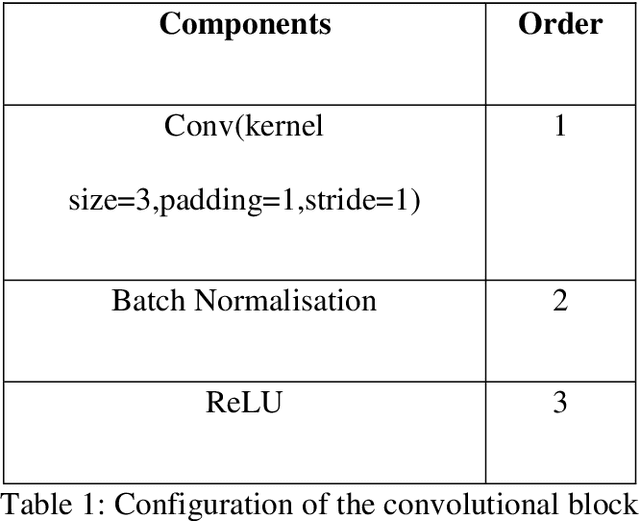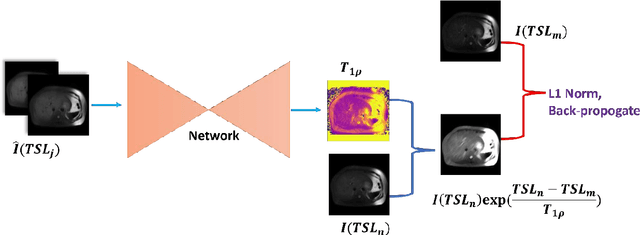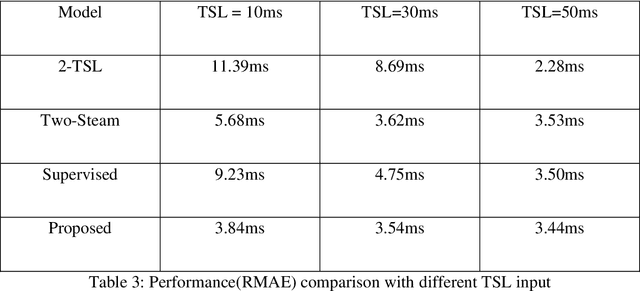Jian Hou
UniTac-NV: A Unified Tactile Representation For Non-Vision-Based Tactile Sensors
Jun 24, 2025Abstract:Generalizable algorithms for tactile sensing remain underexplored, primarily due to the diversity of sensor modalities. Recently, many methods for cross-sensor transfer between optical (vision-based) tactile sensors have been investigated, yet little work focus on non-optical tactile sensors. To address this gap, we propose an encoder-decoder architecture to unify tactile data across non-vision-based sensors. By leveraging sensor-specific encoders, the framework creates a latent space that is sensor-agnostic, enabling cross-sensor data transfer with low errors and direct use in downstream applications. We leverage this network to unify tactile data from two commercial tactile sensors: the Xela uSkin uSPa 46 and the Contactile PapillArray. Both were mounted on a UR5e robotic arm, performing force-controlled pressing sequences against distinct object shapes (circular, square, and hexagonal prisms) and two materials (rigid PLA and flexible TPU). Another more complex unseen object was also included to investigate the model's generalization capabilities. We show that alignment in latent space can be implicitly learned from joint autoencoder training with matching contacts collected via different sensors. We further demonstrate the practical utility of our approach through contact geometry estimation, where downstream models trained on one sensor's latent representation can be directly applied to another without retraining.
CADRL: Category-aware Dual-agent Reinforcement Learning for Explainable Recommendations over Knowledge Graphs
Aug 06, 2024



Abstract:Knowledge graphs (KGs) have been widely adopted to mitigate data sparsity and address cold-start issues in recommender systems. While existing KGs-based recommendation methods can predict user preferences and demands, they fall short in generating explicit recommendation paths and lack explainability. As a step beyond the above methods, recent advancements utilize reinforcement learning (RL) to find suitable items for a given user via explainable recommendation paths. However, the performance of these solutions is still limited by the following two points. (1) Lack of ability to capture contextual dependencies from neighboring information. (2) The excessive reliance on short recommendation paths due to efficiency concerns. To surmount these challenges, we propose a category-aware dual-agent reinforcement learning (CADRL) model for explainable recommendations over KGs. Specifically, our model comprises two components: (1) a category-aware gated graph neural network that jointly captures context-aware item representations from neighboring entities and categories, and (2) a dual-agent RL framework where two agents efficiently traverse long paths to search for suitable items. Finally, experimental results show that CADRL outperforms state-of-the-art models in terms of both effectiveness and efficiency on large-scale datasets.
Uncertainty-weighted Multi-tasking for $T_{1ρ}$ and T$_2$ Mapping in the Liver with Self-supervised Learning
Mar 14, 2023Abstract:Multi-parametric mapping of MRI relaxations in liver has the potential of revealing pathological information of the liver. A self-supervised learning based multi-parametric mapping method is proposed to map T$T_{1\rho}$ and T$_2$ simultaneously, by utilising the relaxation constraint in the learning process. Data noise of different mapping tasks is utilised to make the model uncertainty-aware, which adaptively weight different mapping tasks during learning. The method was examined on a dataset of 51 patients with non-alcoholic fatter liver disease. Results showed that the proposed method can produce comparable parametric maps to the traditional multi-contrast pixel wise fitting method, with a reduced number of images and less computation time. The uncertainty weighting also improves the model performance. It has the potential of accelerating MRI quantitative imaging.
Uncertainty-Aware Self-supervised Neural Network for Liver $T_{1ρ}$ Mapping with Relaxation Constraint
Jul 07, 2022



Abstract:$T_{1\rho}$ mapping is a promising quantitative MRI technique for the non-invasive assessment of tissue properties. Learning-based approaches can map $T_{1\rho}$ from a reduced number of $T_{1\rho}$ weighted images, but requires significant amounts of high quality training data. Moreover, existing methods do not provide the confidence level of the $T_{1\rho}$ estimation. To address these problems, we proposed a self-supervised learning neural network that learns a $T_{1\rho}$ mapping using the relaxation constraint in the learning process. Epistemic uncertainty and aleatoric uncertainty are modelled for the $T_{1\rho}$ quantification network to provide a Bayesian confidence estimation of the $T_{1\rho}$ mapping. The uncertainty estimation can also regularize the model to prevent it from learning imperfect data. We conducted experiments on $T_{1\rho}$ data collected from 52 patients with non-alcoholic fatty liver disease. The results showed that our method outperformed the existing methods for $T_{1\rho}$ quantification of the liver using as few as two $T_{1\rho}$-weighted images. Our uncertainty estimation provided a feasible way of modelling the confidence of the self-supervised learning based $T_{1\rho}$ estimation, which is consistent with the reality in liver $T_{1\rho}$ imaging.
 Add to Chrome
Add to Chrome Add to Firefox
Add to Firefox Add to Edge
Add to Edge